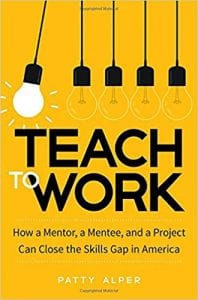Books, Reading, and Nostalgia
As I mentioned in my previous post, I am sprinting to finish my 100-book Goodreads challenge for 2018. Last night, I was perusing my home’s bookshelves looking for a particular book (which I still haven’t located). In the process, my eyes swept over the shelves that contain remnants of the scads of books I read to/with my children when they were young.
Which brought on a bout of nostalgia. I read to my children practically from birth, and am always aghast when I encounter new parents who proclaim they will start reading to their child when s/he starts talking. I’m never quite sure what the right reaction is. I don’t want to “lecture” people and get their backs up, and at the same time my heart cries for those babies who are missing out. As a May 2017 Psychology Today article reports, “[r]eading to babies as young as six months of age leads to stronger vocabularies and better early literacy skills four years later…” In my mind, six months of age is still a late start!
[r]eading to babies as young as six months of age leads to stronger vocabularies and better early literacy skills four years later
My older son was a book lover from an early age. As I scanned our bookshelves, memories flooded back of sitting snuggled together reading book after book, him totally wrapt, begging for more. Shortly after revisiting this time in my life, I read Anna’s post on the Meditative Pace of Reading. Her musings relate to adult reading, particularly longform fiction. Knowing she has a newborn at home, I invite her to also start considering all those delightful stories she can share with her child!
Some that were favorites in my house:
Calvin and Hobbes, by Bill Watterson
Everything Dr Seuss
Everything Eric Carle
The Giving Tree (and his poetry books!), by Shel Silverstein
Goodnight Moon, by Margaret Wise Brown
Harry the Dirty Dog, by Gene Zion
Mr Gumpy’s Outing, by John Burningham
Sylvester and the Magic Pebble by William Steig
The Water Hole, by Graeme Base
Where the Wild Things Are (and many others!), by Maurice Sendak
White Rabbit’s Colors, by Alan Baker


